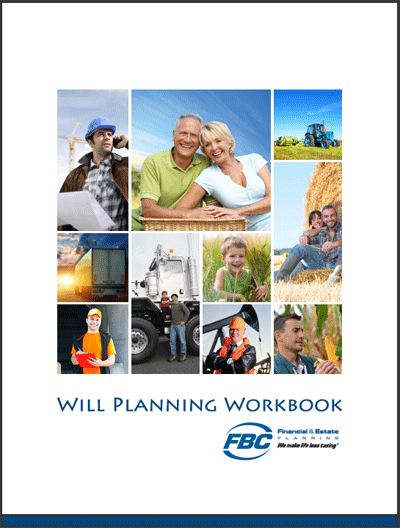Last updated: Feb. 4, 2013
 Have you prepared a will? Undoubtedly, you know that you need a will but did you know that your will is only part of an effective tax plan to protect you and your beneficiaries? Read on to find out how with proper tax planning you can minimize the tax bill on your estate.
Have you prepared a will? Undoubtedly, you know that you need a will but did you know that your will is only part of an effective tax plan to protect you and your beneficiaries? Read on to find out how with proper tax planning you can minimize the tax bill on your estate.
Who should prepare the will?
The first issue you must deal with is deciding whether to have a professional prepare your will for you. Given the fact that a will is an important legal document that will eventually be executed, why would you risk preparing it yourself and potentially missing out on tax shelters?
 What factors need to be considered?
What factors need to be considered?
Factors to consider when preparing a will include choosing the executor, the beneficiary, the guardian, and the right payout age. Your tax professional will tell you that if the sole beneficiary is a spouse there is no tax consequence when you pass away. If that is not the case, there can be tax consequences upon death. If you have minor children, then choosing a guardian is crucial. Even if you have adult children you may decide to spread payouts over several years.
In general, when a person dies, the law assumes that they sold their assets on the date prior to their death date, and there may be substantial capital gains on those assets. If so, the estate will have to pay tax on those gains to the Canada Revenue Agency. But if you leave your assets to a named beneficiary, tax consequences may be reduced.
Did you know that a will does not deal with certain assets like a joint bank account or a house owned in joint tenancy? Without proper estate planning, probate fees that otherwise would not be triggered may need to be paid out.
Is estate planning right for you?
With estate planning, you may be able to reduce the amount of probate fees and taxes that your estate would otherwise pay. Consider the following:
Joint Assets
Joint assets, such as a joint bank account that two or more people own, or a house owned by two people as joint tenants, have a “right of survivorship.” This means that when one person dies, the other person or persons own the asset. So if you and another person own a house as joint tenants, the surviving joint owner will get the house when you die. The house is an asset that passes outside your will. No probate fees will have to be paid by your estate regarding the house, and if the house is your principal residence, no tax will be paid by your estate.
However, note that recent court rulings indicate that if your joint asset is not with your spouse or a minor child, but instead is with an adult child or other adult, then that joint holder owns the asset in trust for you – unless you specify otherwise. So, if you add an adult son to your bank account as a joint holder, and you want the account to belong to him when you die, you must leave a written declaration that this is your intention. Otherwise, it will be presumed that your son holds the bank account in trust for your estate, and the money will be paid out according to the terms of your will.
RRSPs
A Registered Retirement Savings Plan (RRSP) is another asset that passes outside your will if you name a beneficiary in your RRSP. That beneficiary will get the money in the RRSP directly from the company holding the RRSP, and not from the estate.
Trusts
Depending on the size of your estate, you might want to establish a trust before you pass away which protects against a will being contested as invalid or subject to variation.
Preparing your Estate Plan
You can minimize your fees by being well prepared. It helps if you have the information ready before you meet with the professional preparing your will. At minimum, you should have a list of everyone in your family, names and addresses, a list of your assets and who has title. You should have details of pensions, RRSPs, and other investments. A well-drafted will anticipate different scenarios and plans for these (for example, what happens if an adult child or grandchild dies before you). But you should still think about changing your will whenever your financial or personal circumstances change or if there’s a change in the beneficiaries. It’s a good practice to review your will every three to five years to ensure that it still reflects your current wishes.
If you wish to learn more about preparing your estate plan, please contact an FBC Estate Planning professional for assistance.
